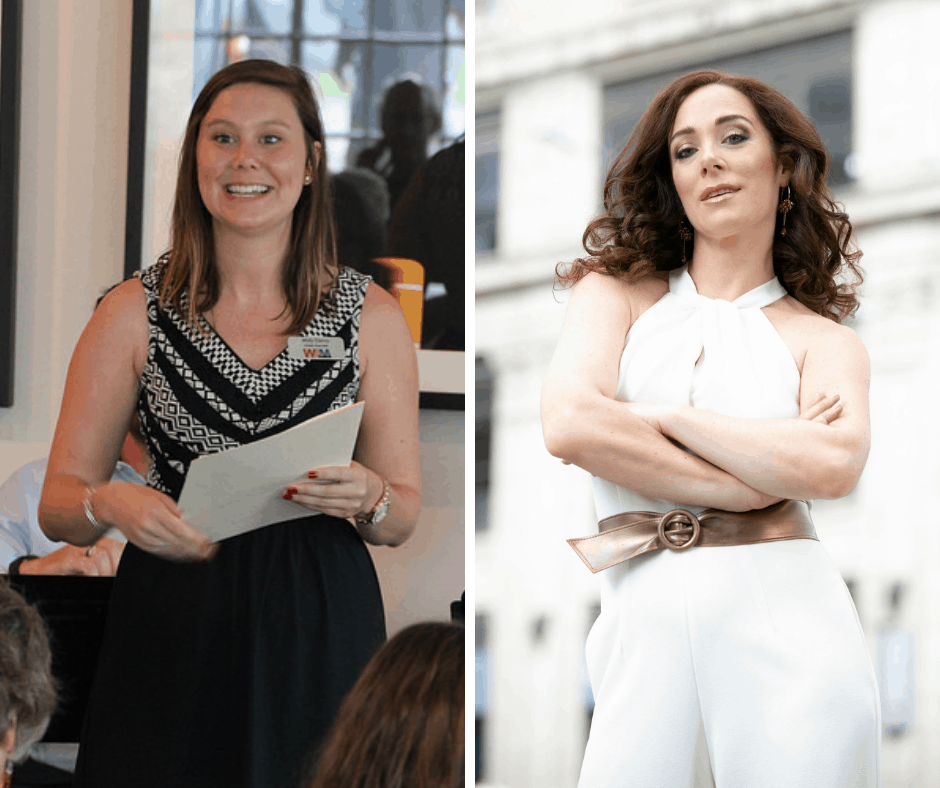 WAM Theatre’s next Fresh Takes play reading is the hard hitting political play HONOR KILLING by first time playwright Sarah Bierstock. The play has recently completed its premiere production at Florida Studio Theatre where the script went through some revisions. In preparation for WAM’s rehearsal, director Molly Merrihew (former curator of Fresh Takes) sat down with Sarah Bierstock to ask her about her influences and ideas.
WAM Theatre’s next Fresh Takes play reading is the hard hitting political play HONOR KILLING by first time playwright Sarah Bierstock. The play has recently completed its premiere production at Florida Studio Theatre where the script went through some revisions. In preparation for WAM’s rehearsal, director Molly Merrihew (former curator of Fresh Takes) sat down with Sarah Bierstock to ask her about her influences and ideas.
WAM kicked off the interview by asking Molly what drew her to the script.
MOLLY MERRIHEW: I first read HONOR KILLING in the winter of 2016. I was drawn to the play’s inventive storytelling and cross-cultural exploration of violence against women in the United States and Pakistan. I was also inspired by Sarah’s integration of technology, and enjoyed visualizing how it could work on stage. Revisiting the play this spring has been illuminating: Sarah, you have continued to work on the script, and our country as a whole is in a very different place. During the plays development we have endured a polarizing election and acclimated to a new president— in doing so women have marched in pink hats, chanted black-lives matter, posted #MeToo, and called BS. We have thought a lot about the responsibility of our journalists and our responsibility as citizens. We have re-examined the stories we tell as a society, and whose voices are telling them. HONOR KILLING explores these same themes, examining violence throughout our world by mirroring the lives of two women. I find the writing timely, relevant, and inline with WAM Theatre’s inspiration, “Half The Sky: Turning Oppression into opportunity for Women Worldwide.”
MOLLY: Sarah, can you share your inspiration behind HONOR KILLING? How did you conduct your dramaturgical research?
SARAH BIERSTOCK: On the morning of May 26th 2014, I turned on the news in NYC and learned of the murder of Farzana Parveen – a woman who I did not know, but who’d been murdered by her own family in an honor killing in Lahore, Pakistan. This occurred in broad daylight, on the steps outside of the high court, while gunned policemen stood by and watched.
The circumstances of Farzana’s death horrified and shook me on such a profound level, that I forced it out of my mind. But several days later, thoughts and images of Farzana’s murder flooded my consciousness. I began to pore over the details of this “honor killing”. About a week later, new evidence emerged. Farzana’s husband, who’d been witness to her murder and had very publicly expounded on the injustice of her murder, had admitted to killing his first wife in order to marry Farzana instead. I was incredulous. I began writing HONOR KILLING a day or two later, and within 10 days I had written the skeleton of the play.
While Farzana’s honor killing in Pakistan may have been the impetus to begin writing this piece, I maintain that this is an American story. This protagonist Allisyn is an educated, affluent Caucasian American reporter. It has always been my intention to tell a story that I could personally speak to- not, rather, to speak for a people or culture that I cannot intrinsically understand- not having been born and raised in that culture. The journey that Allisyn takes is one that is true to her individual experience as an American female who has a vested interest in women’s rights in Pakistan. This interest is in direct response to an American gang rape that occurred in her past. The circumstances of this gang rape, sadly, are also based on a real life event here in the States.
As for the dramaturgical research, I reached out to several Pakistani female reporters, asking for help to authenticate the story I had created. To my delight, several responded positively, and I was able to ask them a myriad of questions that helped me essentially re-write the journalistic and cultural elements of this story more realistically. Specifically, I modeled some of Allisyn’s experiences off of a few female reporters I particularly respect, such as Carlotta Gall (who writes for the Times and covered Pakistan for twelve years). This play has changed, grown and been edited significantly over the years in direct relationship to my conversations with friends and colleagues who are of South Asian or Pakistani decent.
MOLLY: The use of technology is central to the storytelling of the play— was this something you always knew you wanted to explore with the piece or did it grow more organically?
SARAH: The technology was central in the very first draft of this play. It is imperative to me in the telling of this story. It is essentially a character in and of itself. It represents the new paradigm we live in and also explores the questions: How do we get our information? How do we vet that information? Is it real? And how do we know whether it is real or true? Whose perspective has it been filtered through? What financial or political backing might be skewing its objectivity? It also fascinates me how the proximity of a screen (Skype, text, Face Time, etc.) allows for both an incredible intimacy, but yet a total disconnect or lack of understanding can still occur. In life, this can happen even when two people are next to each other, texting each other across a table. I wanted to explore this disconnect – and the irony of when and how it occurs, with technology as it’s vehicle.
MOLLY: In the play violence and injustice against women is shown cross-culturally. In the most recent script it seemed you mirrored this violence in a more conscious way. Was this a choice that came out of workshopping the play?
SARAH: I don’t think this version is crafted to more consciously mirror the violence necessarily. I think that in the rewriting and editing process, which absolutely came out of workshopping of this play, I tried to focus on clarification. The mirroring was always there, but often the rewriting process is about making sure the audience understands what you’ve have written. Our own words usually make sense to ourselves- but your job as a playwright is to make sure that the reader or audience understands what you’ve written, as well! This is where workshopping and developing is so essential. Audience and actor feedback is integral in learning what is working and what is still unclear outside of your own subjective perspective.
MOLLY: In your opportunities to connect with audiences after readings and performances what did you find they were most often responding to? Has the audience dialog or impulse changed from your first reading in 2015 to your most recent production in 2018?
SARAH: There are a few twists in this play that I am careful not to give away because it affects one’s ability to experience the play at face value. So I will be a little vague in answering this . Talkbacks are always fascinating. Initially, people seemed to be much more focused on Allisyn and Ben’s relationship. I had an entire talkback session once where no one even mentioned the Pakistani characters.
Over time, people definitely seemed to be responding to the character Ijaaz and what we discover has happened in his life previous to our meeting him. They are usually shocked and want to talk about that. They now are also extremely responsive to the story Allisyn shares which transpired back in the United States.
Please join us for the reading and to continue this conversation with Molly, Sarah, and the company of HONOR KILLING on Sunday, June 10th at 3:30pm at No. 6 Depot in West Stockbridge, MA. Seating is limited and tickets are going fast. Click below to buy now!
[/et_pb_text][et_pb_button admin_label=”Button” button_url=”https://crm.bloomerang.co/HostedDonation?ApiKey=pub_293457d8-c082-11e6-bb7f-024e165d44b3&WidgetId=192512″ url_new_window=”on” button_text=”Buy Tickets” button_alignment=”left” background_layout=”light” custom_button=”on” button_letter_spacing=”0″ button_use_icon=”default” button_icon_placement=”right” button_on_hover=”on” button_letter_spacing_hover=”0″ saved_tabs=”all” button_text_color=”#ffffff” button_border_color=”#6f77b9″ button_icon_color=”#6f77b9″ button_bg_color=”#6f77b9″] [/et_pb_button][/et_pb_column][/et_pb_row][/et_pb_section]
